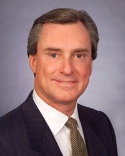 Douglas Woloshin has seen Washington change in the nearly 35 years he's been practicing law. His longevity in the D.C. legal market made him a logical fit as the managing partner of Duane Morris' Washington office, a post he has held since 2004. He is also a member of the firm's partners board and head of the project finance practice group.
Douglas Woloshin has seen Washington change in the nearly 35 years he's been practicing law. His longevity in the D.C. legal market made him a logical fit as the managing partner of Duane Morris' Washington office, a post he has held since 2004. He is also a member of the firm's partners board and head of the project finance practice group.
Woloshin spends about 70 percent of his time focused on his practice and 30 percent fulfilling his obligations as managing partner. He's also an avid Washington baseball fan, dating back to the days of the Senators.
Legal Times sat down with Woloshin on earlier this month to talk about the firm's Washington practices, its growth strategy and baseball.
Legal Times: What are some of the practices that lead Duane Morris' Washington office?
Woloshin: Our largest group is the intellectual property group. That has been the practice group that has grown most quickly within Duane Morris since I've arrived. In the IP group, we do a lot of not only bread-and-butter patent, copyright and trademark work but we also do a lot of litigation. That has been a segment of growth within the IP group. Last year, we were lucky enough to have a trial team join us that focused specifically on International Trade Commission work. We have a large energy group, a corporate group— of which I am a member. We have employment and immigration with a weight toward immigration. We have real estate, telecom, a large trial group here, focusing on white collar crime. We have banking.
How has Washington changed during the course of your legal career?
I graduated Georgetown Law in '73 and Washington, D.C. was a somewhat of a small mid-Atlantic town. It has really grown into a cosmopolitan metropolis. With that, being the center of government, everyone thinks they need to have space here and be represented here. The client base has grown as well.
What does the future hold for Duane Morris' D.C. office?
We have a strong presence on the East Coast from Boston to Florida. The firm acts seamlessly. In Washington D.C. we are relatively new to the game in terms of branding, being here for 15 or 16 years. The city is replete with top name firms. One of my greatest challenges is to assist the branding of the name in this city and that is going to take time given the magnitude of the competition. In terms of the firm strategy, we are looking to double the size of this office. Obviously that is going to take time to do. It is a challenge given the great names that are already in this town, but we're very comfortable with the fact that it will be accomplished. (Duane Morris had 40 attorneys in the Washington office at the end of 2011, according to the Legal Times 150 survey.)
What is driving the growth strategy in Washington?
I would say that the hiring for the firm is predominately guided by the client base and the market that we focus on serving. That is generally the middle market, clients that are under $1 billion in revenue. We find out the legal needs for those clients and offer as best we can and in an efficient matter, the practice groups that can serve those clients. What I have found personally is that as clients grow, their legal needs become more complex. Within this office, one of my main jobs is to promote leverage among all the lawyers in different practice groups. A corporate client can have a real estate need, an IP need, a trial group need. I seek to make sure all the attorneys in this office know about what the client needs and what each are doing to assist the clients in these complex matters.
You've got a lot of Nationals memorabilia on the wall. I take it you're a fan?
We've had tickets ever since they've regrouped and come back to Washington, D.C. When the Nationals came back, they had to find a place to put the stadium. Where it is located right now caused the government to exercise the power of condemnation. We ended up representing many of those former landowners that were displaced by the stadium. While feeling the plight of our clients, we did appreciate that there would be renewed interest in a team in Washington, D.C.
What did you think of the Nationals' dramatic post-season and their odds this season?
It was a great season. The post season was as good as it could be. I just have a sense that we're a young team. We have some great foundations that are being built right now for successes that will hopefully be going forward. I think with management, the right player attitude and fan support, it's a winning combination.







